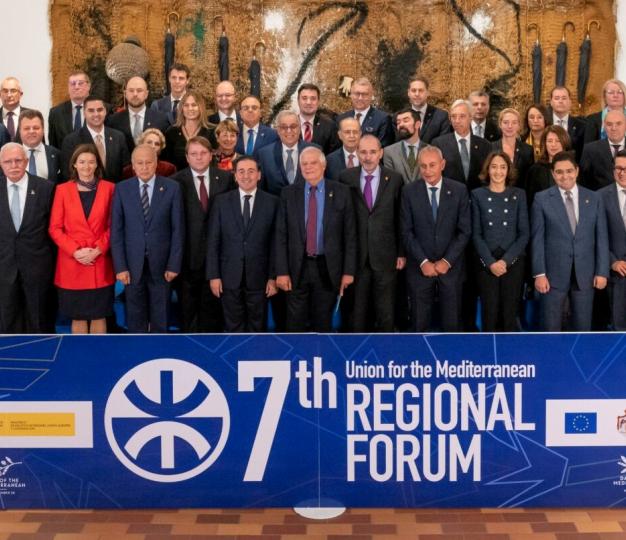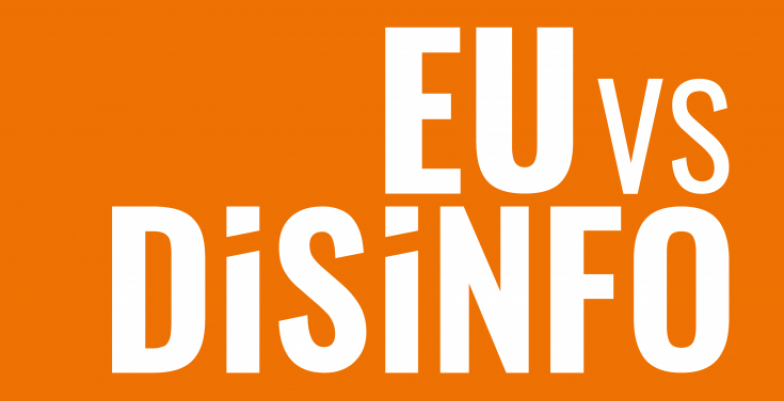Union for the Mediterranean (UfM) and the EU
The Union for the Mediterranean (UfM) is an inter-governmental organisation that promotes cooperation and dialogue in the Euro-Mediterranean region through initiatives addressing the three strategic objectives of regional stability, human development and regional economic integration. The EU holds the role of Co-Chair currently alongside Jordan and provides considerable funding (50% of the UfM Secretariat budget).
On This Page
Navigate the topic
Union for the Mediterranean Structure
The UfM was launched in 2008, building on the Barcelona Process, also called the Euro-Mediterranean partnership, the regional framework for political, economic and social relations, as well as dialogue and cooperation in the Mediterranean started in 1995. Along with the 27 EU member states, 16 Mediterranean countries are members of the UfM: Albania, Algeria, Bosnia and Herzegovina, Egypt, Israel, Jordan, Lebanon, Mauritania, Monaco, Montenegro, Morocco, North Macedonia, Palestine, Syria (currently suspended), Tunisia and Turkey. Libya has an observer status. North Macedonia joined the UfM at the Seventh UfM Regional Forum on 24 November 2022. Since 2012, the EU and Jordan jointly hold the Presidency of the UfM. UfM Senior Officials Meetings (SOMs), co-chaired by the European External Action Service (EEAS) and Jordan, oversee the activities of the UfM.
The UfM Secretariat, based in Barcelona, ensures the operational follow-up of the regional priorities identified at the UfM Ministerial meetings. Its operational budget is financed up to 50% by the European Commission and, for the other half, by contributions from UfM member states.
UfM Priorities and main outcomes
Foreign Ministers of the UfM countries meet since 2015 in an annual Regional Forum, under the co-chairmanship of the EU High Representative / Vice President and the Deputy Prime Minister and Minister of Foreign Affairs of the Hashemite Kingdom of Jordan. At the Seventh Regional Forum on 24 November 2022 in Barcelona, Foreign Ministers focussed the discussion on the need to close the gaps of imbalance between the North and the South, for the benefit of our next generation. The 8th UfM regional Forum (Barcelona, 27 November 2023), initially foreseen to celebrate the UfM’s 15th anniversary and to acknowledge the efforts of reform of the organisation, finally focused on the situation in Israel and Gaza.
More than 20 UfM Sectorial Ministerial Meetings have been organised up to now under the EU-Jordan co-presidency on important domains for the region such as Energy, Transport, Women Empowerment, Industrial Cooperation, Environment, Climate Action, Digital Economy, Trade, Employment and Labour, Water, or Sustainable Urban Development.
UfM Regional Policy Platforms exchange on ministerial mandates and coordinate their implementation by identifying best practices and promoting concrete projects for cooperation. They involve a large network of more than 30 000 stakeholders (international organisations, civil society representatives, international financial institutions, development agencies, private sector entities and universities, etc).
The UfM Secretariat promotes region-wide cooperation projects and initiatives that address the root causes of regional stability and socio-economic challenges. So far, the UfM has attributed its label to more than 60 projects.
The UfM coordinates the Day of the Mediterranean, celebrated every 28 November since 2021 with the aim to foster a common Mediterranean identity, embrace diversity and celebrate cooperation in the Euro-Mediterranean region.
A process of reform of the UfM in order to reinforce the organisations’ role and efficiency was launched in February 2023.









